Transformative Leadership for Health Equity in Southeast Asia: A Journey through the Equity Initiative (2016 – 2022)

The Equity Initiative Utilizes Two Distinct Components to Develop Transformative Leadership for Health Equity
Fellowship Induction Year
To nurture and facilitate the development of leadership for health equity, by bringing together changemakers from different backgrounds throughout the region for a series of in-person and online learning sessions over a year-long induction period. Upon graduation from the induction year, Fellows enter into the Community Action phase.
Community Action for Health Equity
To empower Fellows and partners to take actions for system changes for health equity, through community building beyond the fellowship year, collaborative projects, in-country and regional networks and initiatives, and engagement with the Atlantic Fellows global community.

“Equity is not a single final destination, but a process of collectively moving toward greater fairness. This fellowship program aims to nurture a generation of young leaders and steadily build a sustained community of change agents for health equity.”
Lincoln Chen, President Emeritus of the China Medical Board

Welcome 02 Our Vision And Purpose 03 China Medical Board 05 The Program At A Glance 06 Empowering Leaders For Health Equity 08 Building An Equity Community 11 The Equity Initiative Induction Year 12 Translating Health Equity Knowledge Into Actions 17 The Power Of Collaboration 20 22 Strengthening The Voices Of Community Members Four Professionals With A Shared Goal Spotlighting Examples Of Inequities 25 Taking Many Paths To Health Equity Building Human Capital For Health Equity 26 Networking In Thailand 27 Common Purpose In A Community Of Practice 28 Building A Community Of Practice In Indonesia 30 Beating The Drum For Health Equity 32 Our 127 Fellows (2016-2022) 36 List Of Sponsored Projects 52 EI Team And Supporters 56 Table of Content


02
Our Vision and Purpose


Serious health inequities exist within and between countries of Southeast Asia and China. These are due to many factors, but chiefly imbalance of power; inequitable policies and laws; unequal economic conditions and opportunities; and historical and contemporary prejudices. At the Equity Initiative, we believe that the right kind of leadership can recognize these inequities and take action to improve health equity in the region, thereby contributing to a fairer, healthier, and more equitable Southeast Asia, Our mission is to nurture a community of diverse, committed leaders to advance health equity in Southeast Asia and China. The Equity Initiative aims to empower Fellows with leadership skills, a deeper understanding of health equity, and a network of peers who can guide, direct, and influence others to bring about the fundamental change needed to attain health equity.

Our Core Values and Beliefs
• Health equity is not a single final destination, but a process of collectively moving towards greater fairness.
• Access to quality healthcare is a fundamental right of every human being. Everyone, regardless of their nationality, gender, or socioeconomic background, should have a fair opportunity to live a long, healthy, and happy life.
• Change does not take root without attending to skills, systems, and culture in concert. Social and political factors (determinants) affect health and health equity and must be taken into account.
03
There is no single final end point in society’s struggle for social justice or health equity. Rather, health equity is a process that is guided by a notion of “fairness” in health status, outcomes, and processes. Central to the ultimate goal of this program, therefore, is the embeddedness of health equity in the society, culture, and national fabric of countries in the region. Do the leadership and public recognize and address health inequities? If so, what is being done about them? Is there progress or setbacks in various dimensions?
We build into this program this ‘values-driven’ fundamental wherein the partnering organizations, the governance, and operating staff are themselves committed to achieving health equity. Our goal is to cultivate lifetime commitment of the participating fellows, with support mechanisms in their home environment, and an expanding network of socially-committed and socially-bonded alumni. The fellowship aims to enable and empower rather than simply train or educate. Our aim is to provide a platform for social bonding among like-minded colleagues to give both individual and collective voices for health equity.

04
China Medical Board: A Mission to Advance Health, Equity, and the Quality of Care
China Medical Board (CMB) was launched in 1914 as the second major program of the Rockefeller Foundation, and was endowed in 1928 as an independent foundation. Its mission is to advance health, equity, and the quality of care in China and Southeast Asia. Working in a spirit of partnership at the forefront of strategic philanthropy, CMB strives to build capacity in an interdependent world that fosters innovation in professional education, policy research, and global health.
Throughout its history, CMB has focused on medical education reform, building human capital for health, institution building, and support for young professionals. Through its programs and grant-making, it has worked with its partners in Asia to develop the expertise, capacity, and innovative spirit to continue progress toward improved health and the quality of life. These themes all resonate with our Equity Initiative Fellows, who share a commitment to improving people’s health and well-being and a willingness to invest time and energy in expanding their understanding of health equity and developing their leadership skills.
In 2010, CMB contributed to the work of the Commission on Education of Health Professionals for the 21st Century Report which described three levels of learning: informative (acquiring knowledge and skills), formative (socializing learners around values), and transformative (developing leadership attributes). The purpose of transformative learning is to produce enlightened change agents, and CMB drew on that concept as it consulted with health professionals and policymakers, as well as young leaders in a range of sectors, about designing a lifelong fellowship program. The goal of the program would be to help young professionals in Southeast Asia and China become transformative leaders who can inspire, motivate, and enhance the actions needed to bring about fundamental change for health equity.
In 2016, CMB launched the Equity Initiative, backed by a pooled fund from CMB and the Atlantic Philanthropies. Through skill-experiential and peer learning programs, this long-term fellowship program is developing 500 Asian leaders who, through individual and collaborative efforts, will advance health equity both within their countries and across the region.

05
962
“I’m much more attuned to the ideas of justice, privilege, and power, and these concepts will probably remain the lens through which I view social issues for life. If I pursue academia, I plan to teach medical, nursing, and public health students about equity and social justice. Activism I pursue will be grounded in these fundamental concepts.”
30 Regional Leaders and Experts Participate in the Selection Process
66 Regional and Global Partner Institutions and Organisation
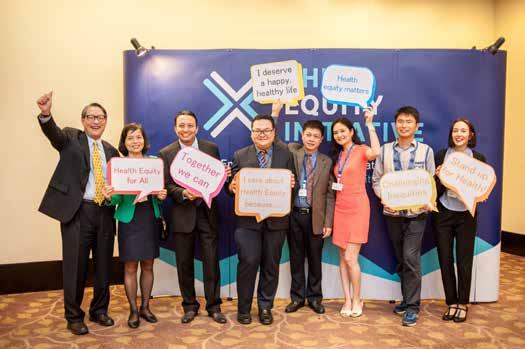 (Fellow of 2016 Cohort)
(Fellow of 2016 Cohort)
The Equity Initiative Fellowship Program At A Glance
06
Inaugural Year of Fellowship Program
127
Applications Received Fellows - 6 cohorts
12
Countries Represented by EI Fellows
15
Countries in the Region and Globally Visited by Fellows
2016
07
Empowering Leaders for Health Equity



EI’s approach to leadership is goaloriented – it is leadership in the service of improving health equity. This form of leadership is socially responsible and value-based, and focuses on collaboratively working together to bring about positive social change in our communities and the world. EI sees leadership as a process, not a position, and one that is inclusive and accessible to all people. Through this approach, any individual can serve as a leader by mobilizing others to confront a problem or challenge, define its nature and scope, and collaboratively develop interventions or solutions.
It asks change agents to look for the root causes of challenges for which there may not be easy answers. It requires relational skills that can bring stakeholders together, negotiate differences, and facilitate progress toward change.
To develop these competent, committed, and dynamic leaders, EI staff devote significant amounts of time, attention, and care at each stage of the induction year program, and they continue to nurture and empower Fellows throughout their longer-term efforts to build equity communities and advance health equity in their communities and in the region.
“ I think the Fellowship has transformed me through all these field visits and meeting all these people, and I have realized that my love for my country has now been transformed into a real love for humanity. For the first time in my life I could actually see myself now working in other countries, which I couldn’t before.”
(Fellow of 2017 Cohort)
“The Equity Initiative fellowship has proven that health equity is not only an issue for health sector professionals but also for academia, activists, policymakers, and youth leaders, among others. The diversity of fellows allows the program to have well-rounded discussions with challenging opinions while at the same time allowing fellows to be exposed to new learning styles and tools, which will enrich their leadership skills and deepen their commitment to serving the community.”
(Fellow of 2021 Cohort)
08
• Recruitment EI has built a robust recruitment process, designed to attract a diverse pool of individuals who are willing to apply their knowledge, creativity, and skills to advance health equity. We seek applicants from a wide range of sectors, including medical and health professionals, academic researchers, government officials, NGO leaders, lawyers, educators, social workers, artists, and others. Our Senior Fellows, national committees, and regional and global networks help us expand our outreach.
• Investing in Fellows EI invests in Fellows – in the induction year and beyond – through building up their knowledge base and skills, supporting their leadership development, providing tailored-feedback and one-on-one coaching, expanding their professional networks, and offering financial support for their equity-focused projects. The goal of these investments is to enable Fellows to work in partnership with each other and to build communities of practice in support of health equity.
• Creating connections EI puts a strong emphasis on social bonding, and induction year events are designed to give Fellows the time and space to form friendships and to build trust with each other. This creates an environment conducive to personal reflection, sharing, and deep learning, which in turn can lead to collaborative action and lifelong, supportive relationships. EI’s Annual Forum welcomes Fellows from all cohorts as a means to build relationships across cohorts and catalyze additional opportunities for collaboration.
• Support for Growth We deeply care about Fellows’ practice of leadership and their lifelong pursuit of the knowledge and skills they will need to develop a vision of system change, undertake effective individual action, and engage stakeholders in collective efforts. Our equity community and network help Fellows envision the routes they can take for equity action and then enhance their level of impact and influence.
• A Global Community The Equity Initiative fellowship program, also known as the Atlantic Fellows for Health Equity in Southeast Asia (AFHESEA), is one of seven interconnected Atlantic Fellows programs. While each of the seven programs is distinct and grounded in its local context, they share a common purpose of advancing fairer, healthier, more inclusive societies. Upon completion of their induction year, Fellows join the global Atlantic Fellows community.
09
“The fellowship gave me a safe space to learn how to be challenged and to accept new perspectives, which may not necessarily be aligned with my own. It provided an opportunity to practice how to truly listen and observe and to learn from differences, from humility, and from passion.”


(Fellow of 2018 Cohort)

10
Building Equity Community
The Equity Initiative aims to build an Equity Community by engaging national, regional, and global networks of health equity champions for long term collaboration and partnership to make meaningful systems change. With EI Fellows at its core, the Equity Community strives for a single goal of fairer, healthier, and more inclusive societies.
We strongly believe that a community of Fellows from diverse backgrounds – with


shared values in social justice and equity – can achieve much greater impact than any individual or solitary group. Thus, the fellowship year is just the beginning of a lifelong journey for our Fellows. Upon completion of the fellowship induction year, Fellows are linked across cohorts and, through peer, country, and regional networks, with other professionals who are promoting health equity. Fellows are also part of the Global Atlantic Fellows community.
Our core premises for building a health equity community are:
• Shared Values: A community, acting on shared values, can bring greater visibility to inequities and collaborative, sustained action to overcome them.
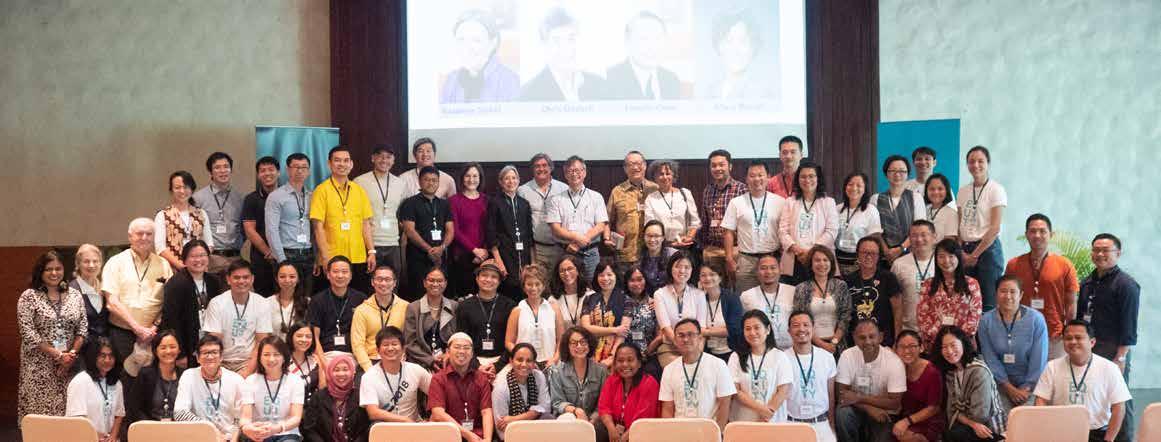
• Sustained Engagement: Health equity is not a single event or an episodic issue.
“I know that I can always reach out to my EI fellows when I need something related to my professional life, and they will help me because we are bonded through the common goal of reducing inequities in the region. In terms of how this has added to my life, I have to say that I feel that we are an extended family now. I will miss seeing my equity family every three months!”
(Fellow of 2016 Cohort)
11
The Equity Initiative Induction Year
EI sees transformative learning as essential to developing leaders who will feel empowered to question, challenge, and develop new ways of thinking. Fellows’ deepened understanding of health and equity, combined with competency in systems thinking, problem solving, organizing and creating change, social innovation, communication, and other areas, will enable them to turn their ideas into effective action.
“EI has given me the opportunity to step back and reflect on where I want to be, personally and professionally, in the next years. The experience has been eye-opening, inward-looking, and outward-facing process – and has given me some thought-provoking questions about what I want to do.”
EI’s induction year combines elements of peer, experiential, and blended online learning in its six modules:
• Opening Retreat This orientation introduces new Fellows to each other and to the cross-cutting values and learning modules of the program.
• Global Learning I and II International travel and academic sessions connect Fellows with world-class scholars and inspirational leaders, and expose them to on-the-ground health equity issues.
• Asia Trek Immersive learning within the Asian region gives Fellows a local lens for viewing transnational health issues.
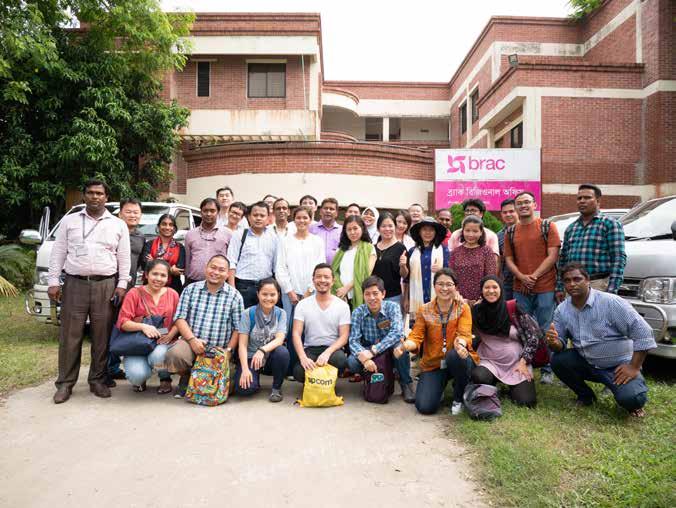
• Project Accelerator Training workshops and open discussion help Fellows refine ideas for their health equity projects and strengthen leadership and management competencies.
• Annual Forum This event convenes Fellows from all cohorts, and inducts newly graduated Fellows into the lifelong community of the Atlantic Fellows Program
12
(Fellow of 2019 Cohort)
Each component is designed to help Fellows more clearly define their own core values, beliefs, and goals (sense-making); expose them to different ways of thinking, stakeholders, and systems (diversity); consider ways to remove the systemic and structural barriers to equal opportunity and access (fairness); and explore how power, privilege, and oppression influence structures and systems (power dynamics)
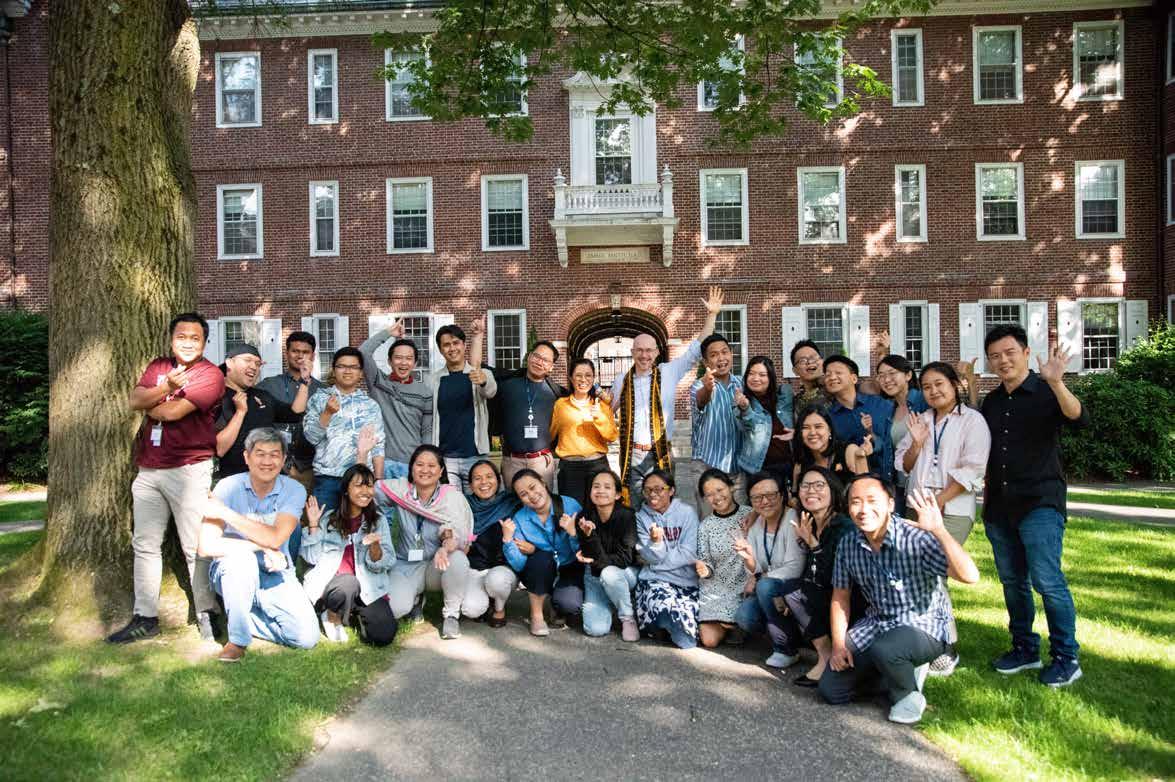
13
“Throughout the year, I’ve gained much insight into my motivations and biases.
and how you might do it differently. It helps to move forward with that awareness of self.”
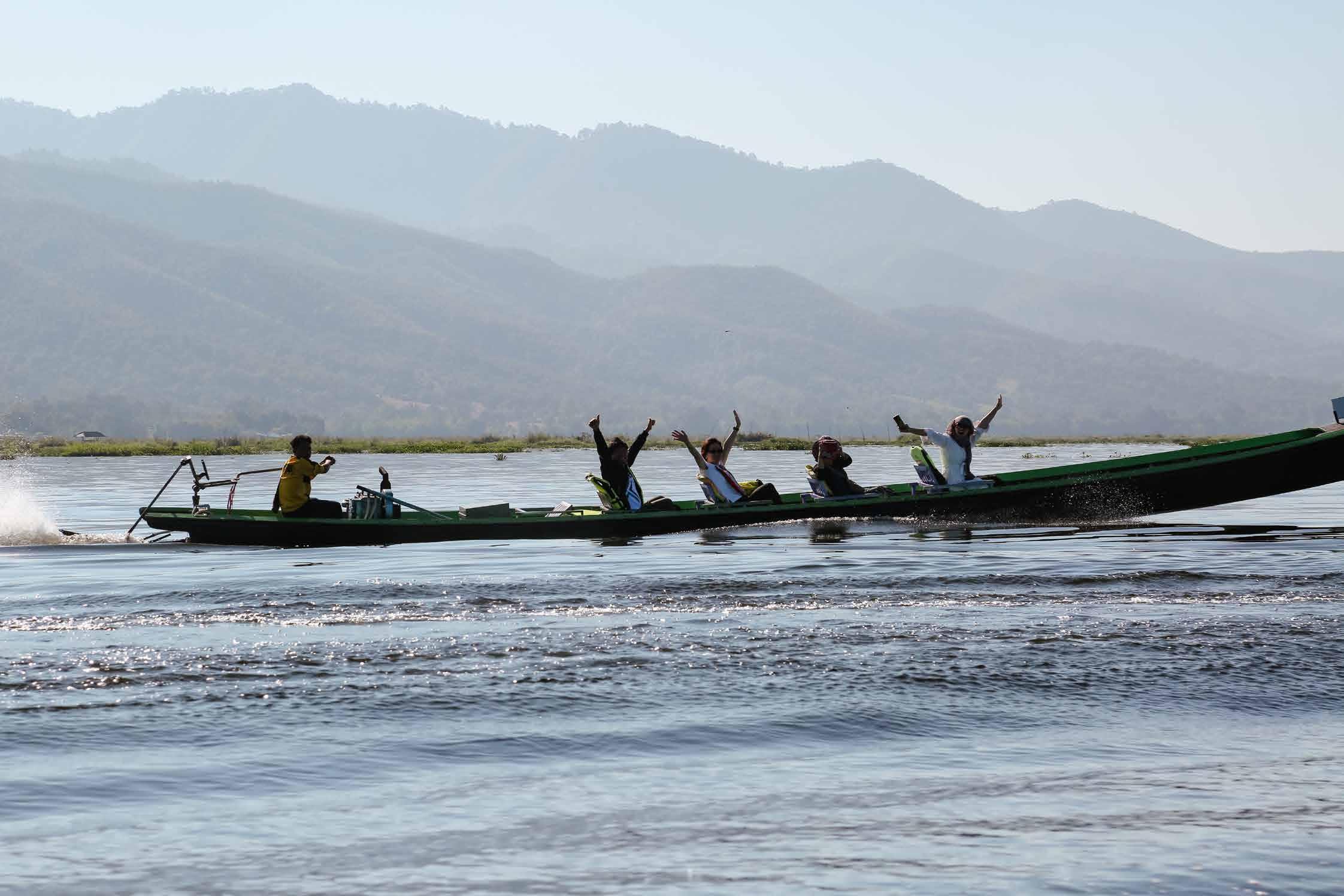
(Fellow of 2016 Cohort)
14
The program provides a unique opportunity to reflect on why you do what you do

15
“What I loved about this retreat (Opening Retreat) are the wonderful connections we made with one another and how they fast-forwarded our friendship.”
(Fellow of 2017 Cohort)
“In two weeks, I met the brightest minds in global health at Harvard and dined with social activists and equity advocates in South Africa, as well as learned about other Fellows’ amazing achievements. Many ideas for projects were seeded during the Global Learning events.”
(Fellow of 2019 Cohort)
“During this learning event (Asia Trek), the inputs from various speakers/ resource persons inspired me to proactively think about the future, and they guided me how to move forward and put into action the knowledge and lessons they provided. Travelling to different countries was an eye opener, and motivated me to do more”
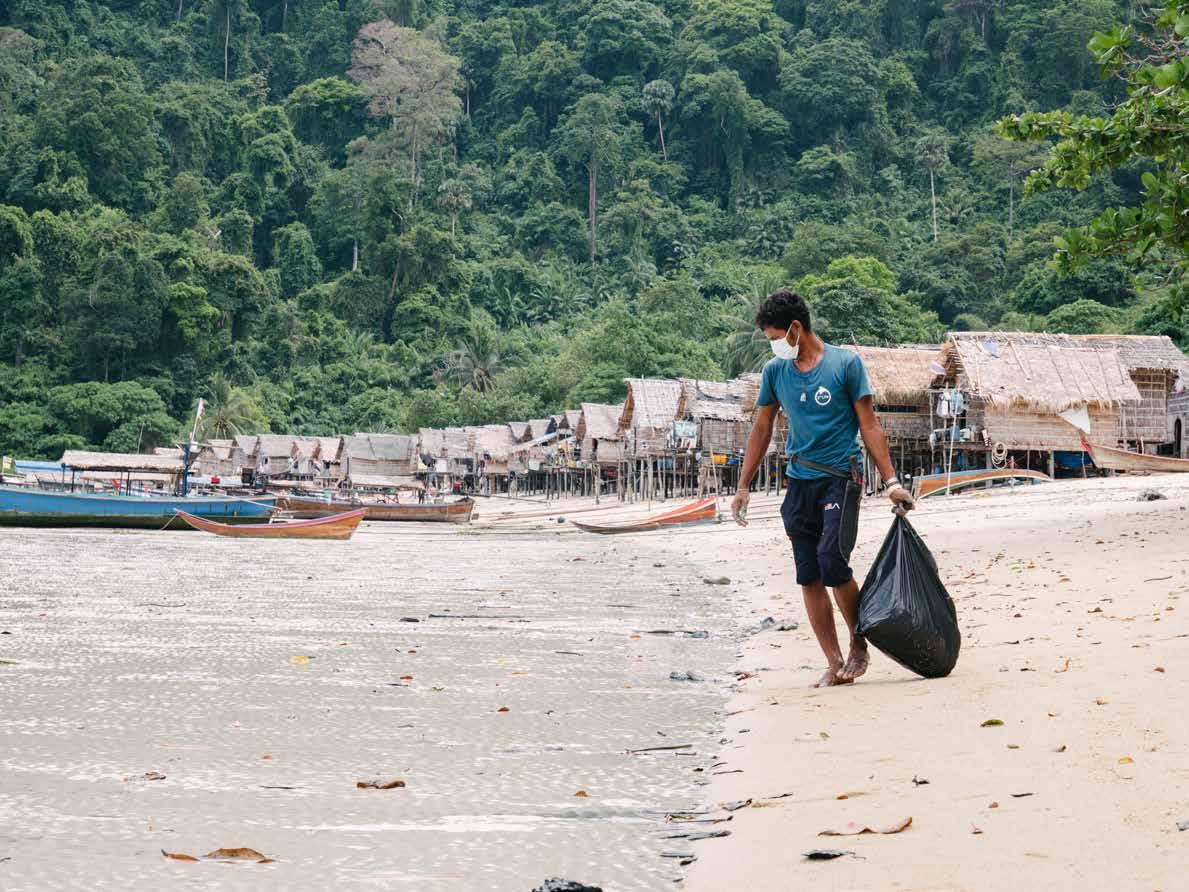
(Fellow of 2018 Cohort)
“My realization for this week’s event (Project Accelerator) is more on embracing humility. Despite our expertise and knowing that we had very strong and solid concepts for our projects, we still learned to bend and accept the guidance of our mentors. Our existence and our aspirations are not on what WE can do, rather what others can do for themselves through us – that for me is empowerment.”
(Fellow of 2022 Cohort)
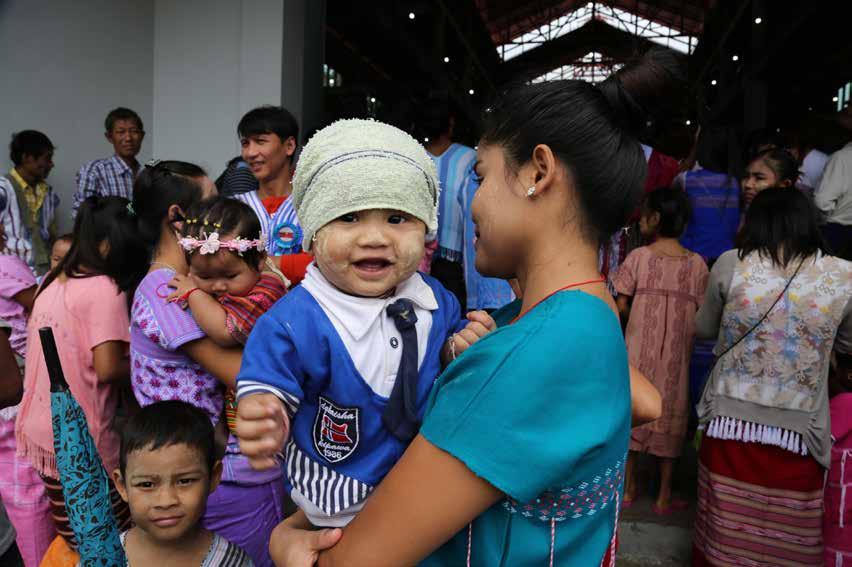

16
Translating Health Equity Knowledge into Action –Fellows’ Second Year Project


Over the course of the induction year, Fellows develop plans for the collaborative, small-group, equity-focused projects they will implement in their second year of the fellowship. They are supported in this process through peer feedback and coaching from experts and EI staff, from project ideation through defining the project’s rationale, goals, reasoning, and timeline; writing and revising the project proposal; and group presentations at the Annual Forum.
Through design and implementation these projects, Fellows put into practice the core values of health equity and exercise newly acquired leadership skills. In the past several years, second-year projects have addressed a rich variety of topics, such as meeting the health needs of migrants and refugees; alleviating childhood stunting; community-led monitoring of pollution; using telehealth to expand access to services in remote or conflict-affected areas; and using art to increase health literacy.
“Through development and implementation of the project, we get a better understanding of equity-related issues in Viet Nam. At the same time, it helps improve our analytical skills and build our capacity in measuring and explaining inequities issues. Most importantly, the project is the opportunity to connect three of us with different professional background and expertise together, learn from each other, and expand our networks with relevant stakeholders in the field.”
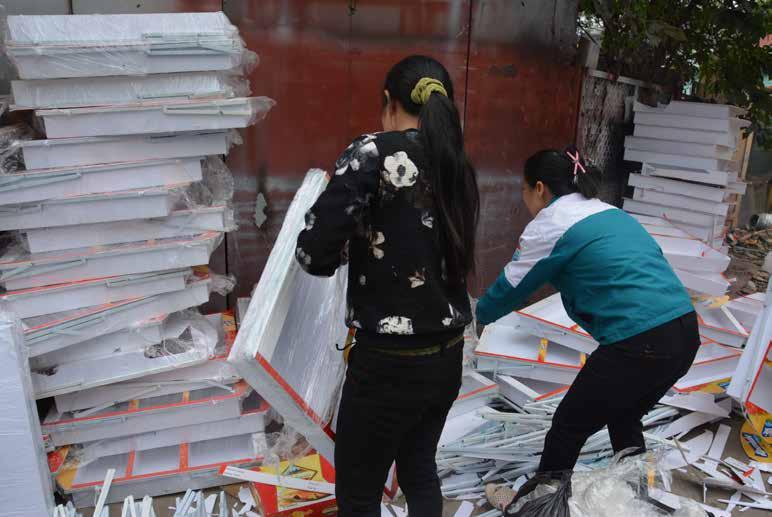 (Viet Nam Fellows Group Project)
(Viet Nam Fellows Group Project)
17
Fellows’ Profile by Numbers
Brunei Cambodia China Indonesia Lao PDR Malaysia Myanmar Philippines Singapore Thailand Timor-Leste Viet Nam Total 127 8 9 18 6 21 2 20 8 1 7 11 16 Non-Health 68 Health 59 Inter-Government Organisations 3.1% $ Business / Private Social Enterprise 17.4% NGO Government 22.1% Academia 19.7% Non-government & Communityu-based Organisations 37.8% 18

19
assessment (CHIA). In 2017, she founded Community-Led Impact Institute, a nonprofit organization, to create and scale up social impact in Thailand and throughout Southeast Asia. Working at the local level, Nui trains residents to collect data, o en on the impacts of pollution, and to use that data for health protection and advocacy.
Nui sees CHIA as a tool for empowering local communities, and through her EI experience, she has been able to share that tool with other advocates for health equity. For her second-year project, Nui partnered with Channé Suy Lan (Cambodia, 2017), a systems design specialist and managing director of InSTEDD iLab Southeast Asia. Their project focused on pollution from a coal-fired power plant in Xayabory Province in Laos, a border area adjacent to Nan Province in Thailand.

The goal was “to empower local people to collect data on the effects of the coal plant and engage with the government and the company to address the problem,” Nui explained in the project’s final report, “so the project is like a social lab, working in a small village in a remote area, using the results to create a more complete model of impacts, seed experiments in other areas, and influence policy making.”
Nui and Channé’s project succeeded in building a transdisciplinary network and in securing additional funding. Support from Thailand Science Research and Innovation enabled Nui to work with Alay Phonvisay (Laos, 2017), a member of the Faculty of Economic and Business Management at the National University of Laos. Alay’s research interests lie in conducting impact assessments for development projects, and the Hongsa power plant was an opportunity to examine transborder impacts, structural
– The Power of Collaboration –20
inequalities, and sustainability. At the same time, Thailand’s Health Systems Research Institute funding supported work on a community-led health impact monitoring system in Nan Province. This monitoring system would be based on co-production of knowledge from laypeople and experts in environmental science, engineering, social sciences, and other disciplines.
Inclusion is at the heart of health equity –ensuring that all people, including
members of marginalized communities, have a fair opportunity to be as healthy as possible. Through her projects with Channé and Alay – as well as other collaborations with Beverly Lorraine Ho (Philippines, 2017) and Pianporn Deetes (Thailand, 2021) – Nui strives to make sure that local community members can make their voices heard and contribute their insights as decisions are made that will affect their health, livelihoods, and well-being.
“I do this to empower people to do CHIA by themselves and can negotiate with policy makers by themselves,” Nui says. “I would like to see equity in terms of every sector, especially the community [to] have the right to engage in the decision making and have the right to determine their future. Not a top-down policy but they have the right to have a choice [when it comes to] what kind of development they would like. Because for me, people [on the] community side are powerless in the public policy process. The powerful [ones are] from the government or the business sector.”
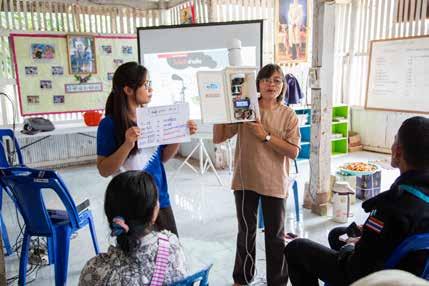
21
Four Professionals with a Shared Goal
base for a proposed change in policy, so she turned for assistance to Hoang Van Minh (2016), rector of the Hanoi University of Public Health.
Minh agreed to help Nhat design her research project, which aims to identify services currently available for people with physical impairment; assess the unmet need for services; and set a cost framework for three-year and five-year packages of services. Minh also saw another gap – the lack of professionals qualified to provide rehabilitative care to people needing prosthetics and orthotics – and seized the opportunity to develop a curriculum at his university to build up the rehabilitation workforce.
Systems change can sometimes start with small steps. Four Vietnamese Fellows, for instance, recognized that making prosthetics, orthotics, and associated rehabilitation services available to people with disabilities (PWDs) could have an outsized impact on their physical and mental health, access to education, employment, and economic opportunities.
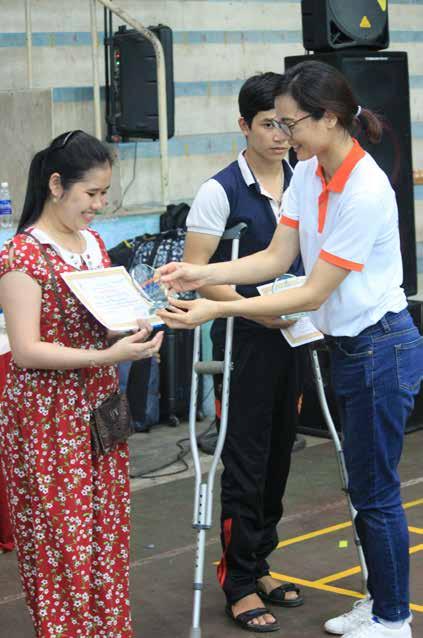
Le Thi Nhat (2019), a project manager for the International Committee of the Red Cross (ICRC), was eager to remove a barrier to rehabilitative services: Viet Nam’s state health insurance plan does not reimburse the cost of mobility-assisted devices. Nhat knew the Ministry of Health would expect to see an evidence
At the 2022 Annual Forum, Nhat shared some of her ideas with Nguyen Hoang Chieu Anh (2022), a psychological counselor interested in expanding mental health services in Viet Nam. Chieu Anh recommended including psychological support services in the package of services Nhat was proposing. Chieu Anh suggested a three-tier approach of screening and assessing PWDs to determine the services needed; training 10-15 PWDs to offer peer-to-peer support; and set up a clinical practice that can offer one-to-one professional counseling.
Recognizing that macro-level advocacy will be needed to build support for policy change, Nhat has kept Nguyen Thi Lan Anh (2017) informed about her plans. Lan Anh has expertise in empowering PWDs through her work as the director of Action at Community Development
The
–
–
Power of Collaboration
22
Center, a local NGO, and she has a broad professional network through leadership roles in the Vietnam Women’s Union and the Vietnamese Federation on Disabilities. She was a strong advocate for Viet Nam to ratify the UN Convention on the Rights of People with Disabilities in 2014, as well as for the Viet Nam’s ratification of the International Labor Organization Convention No. 159 on Vocational Rehabilitation and Employment for PWDs, which entered into force in Viet Nam in 2020.
EI helps Fellows appreciate the benefits of advocating with others to press for systemic change. Through their collective actions, Nhat, Minh, Lan Anh, and Chieu Anh offer an illustration of collaboration across cohorts and professions in pursuit of a shared goal: to improve the lives of people living with disabilities.
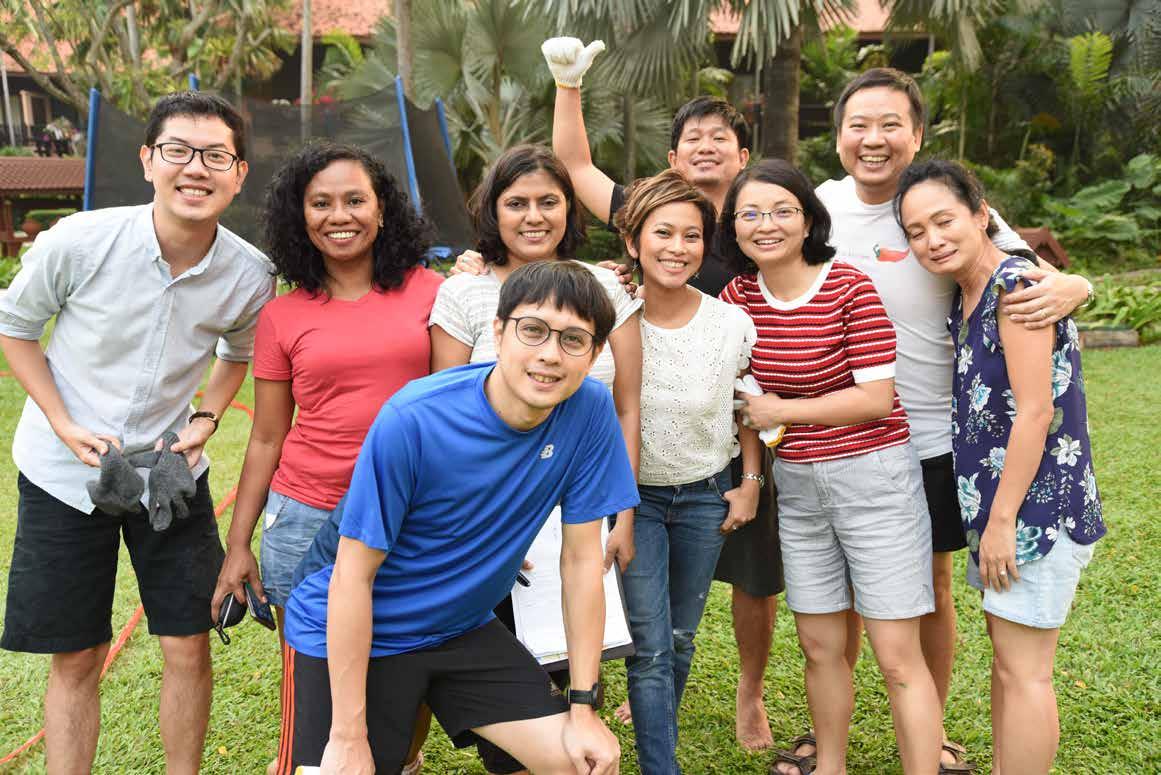
23
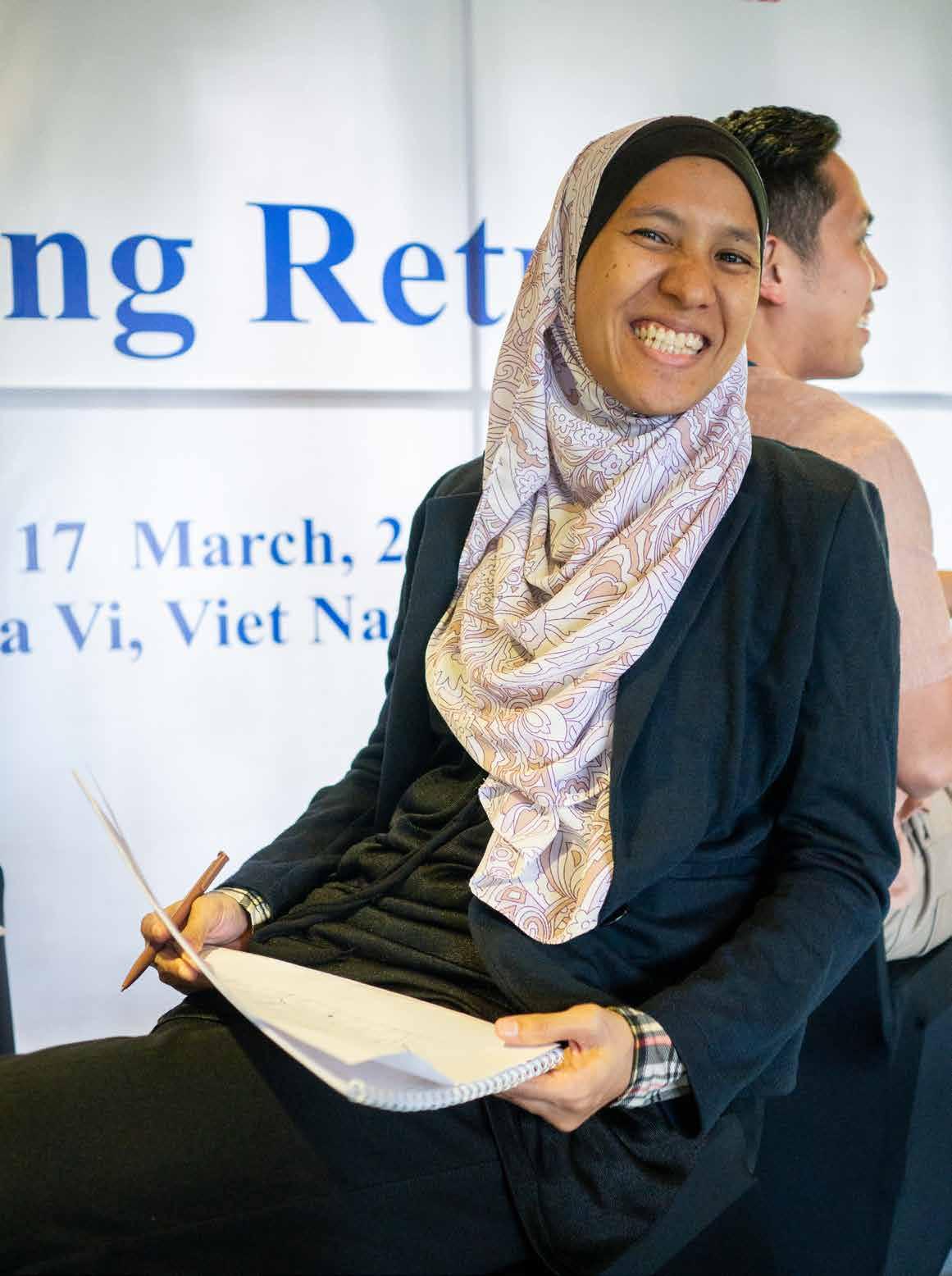
24
Spotlighting Examples of Inequities
Raudah Yunus (Malaysia, 2019) and Gideon Lasco (Philippines, 2019) are public health professionals who are passionate about using writing to promote equity. Both were deeply moved by their visit to Rohingya refugee camps in Cox’s Bazar, Bangladesh, during their Asia Trek experience, and their interactions with refugees served as a call to action.
front lines, and improving migrant workers’ access to health services.
to make a greater impact for this marginalized population,” Raudah recalled. Gideon wrote a column on “The Rohingya conundrum” for the Philippine Daily Inquirer soon a er the visit to Bangladesh, and more recently, the two coauthored a March 2021 opinion piece in The Daily Star that called for renewed attention to the plight of the Rohingya.
For instance, they pointed out that migrant workers o en are le out of universal health coverage schemes in ASEAN countries, and they urged global health leaders to make COVID-19 vaccines more readily available to lower and middle income countries.

Raudah and Gideon also want to li up other examples of inequities in health. When COVID-19 struck, they encouraged Fellows in their cohort to write about their experiences as “equity warriors” who were responding to COVID’s impact on marginalized groups. EI published the essays from 11 Fellows in a collection titled Vignettes of Equity. Raudah and Gideon have made equity a focus in their published articles on vaccine equity and hesitancy, health workers on the political
By spotlighting equity issues through their writing, Raudah and Gideon hope to encourage community members, young professionals, and policy makers to take action within their respective capacities. They also find benefits in the collaborative process. “You get to learn from someone who shares your ideas and values, and think in new ways about creating impact,” Raudah finds. “It keeps you connected to other Fellows, even those who are not directly involved in the writing.” Gideon also sees the benefits of drawing on multiple perspectives: “Co-writing enriches the text both in symbol and substance, giving the potential to be more powerful and effective.”
The EI fellowship gave us a platform to connect and discuss what can be done together
– The Power of Collaboration –25
– Taking Many Paths to Health Equity
–
Building Human Capital for Health Equity
Health system strengthening has been a strong focus of Cambodia’s National Institute of Public Health (NIPH), and as an academic institution it directs its expertise toward improving the quality of services, translating scientific evidence into health policies, and producing public health professionals. Health equity is another piece of system strengthening, and under the auspices of the Ministry of Health, NIPH has been working to support the Cambodian government’s commitment to providing quality healthcare services to the entire population according to need, without financial hardship.
“The provision of equitable health services is one of the goals set by the Ministry of Health,” Chhorvann Chhea (2016), Director of Cambodia’s National Institute of Public Health (NIPH), points out.

“However, to what extent health providers, at all levels, have translated this concept into actions remains unclear. Anecdotal evidence suggests that applying the concept of ‘health equity’ among health care managers is limited, as managers at public health facilities do not assess whether their services have reached the target population, especially the most vulnerable groups.”
Chhorvann focused his EI second-year project on students, faculty, health care managers, and researchers – the human capital needed to build health equity. He organized four workshops at NIPH. Two workshops were for faculty and students at NIPH, on equity and on social inequality in health, and one was for health center managers as part of the Management and
Leadership Program or Health Managers in Cambodia. He also convened a workshop on equity analysis for young researchers at NIPH, in an effort to encourage them to generate equity-related questions and use existing datasets for equity analysis.
Managers of health facilities remain a key target group for improving health equity. Since 2019, NIPH has added more focus on the provision of management and leadership training to managers of health facilities at sub-national level so that they could provide more equitable healthcare services. NIPH also has formed a network among health facility managers to enhance
knowledge and share experience related to integrating health equity into the healthcare system.
“Time is a determinant,” Chhorvann said in a recent presentation to 2022 EI Fellows, “and the challenge is knowing what to do and when to do it.” Investing in human resources now – through training and networking of healthcare managers, integrating health equity concepts into public health curricula, encouraging equity-focused research, and other steps – can ensure that as new policies take shape, there will be qualified professionals ready to turn health equity goals into effective practice.
26
Networking in Thailand
EI now has 21 Fellows from Thailand, with professional interests as diverse as health systems, environmental advocacy, LGBTQ rights, landscape architecture, health technology, care for the elderly, and more. But for EI’s first two cohorts (2016 and 2017), there were only six Thai Fellows in total, which could have made it challenging to create the sense of an active community for health equity in Thailand. “For EI to facilitate change at a country level, we need to work with a broader network,” EI Program Director Piya Hanvoravongchai said. In 2017, he and members of EI’s Thai National Committee helped connect the Thai Fellows with two other groups in Thailand – Ashoka Thailand and the Thai Health Leadership Network.


Like EI, Ashoka and the Thai Health Leadership Network share interests in social justice, health, and equity: Ashoka through its support of dynamic social entrepreneurs and the Thai Health Leadership Network through capacity building of medical and health professionals, NGO workers, social scientists, and others. And their fellows shared something else with EI Fellows. “They felt that there was not a platform or space for people to really connect and share in this area of social change,” Piya noted, “and they felt that it was important to do that.” Informal “tea drinking” get-togethers were occasions to share information about each other’s work, and participants in the three programs planned a three-day Social Equity Impact Forum, held in July 2019.
Linking with other programs also helped EI to elevate its brand. “We were new and not that many people knew who we were,” Piya recalled. “ Connecting with Ashoka, which
“..has a network across different organizations, helped EI’s name to become known among these actors”
has 100-plus change leaders in Thailand and with the Thai Health Leadership Network, which has a network across different organizations, helped EI’s name to become known among these actors. That helped us recruit many well-qualified applicants from Thailand.”
The pandemic sidelined plans for another forum or other gatherings, and fresh thinking may be needed to consider when and how participants in these three programs might regroup. But a lesson learned is that there are other groups who share EI’s values and who can be allies in making progress toward health equity.
“We want to catalyze collective effort,” Piya said about EI and its outlook for the future, “and we want to keep momentum going.” By connecting with other networks of changemakers, EI can help its Fellows add strength to their ideas and initiatives and multiply the benefits they deliver to the communities they serve.
That helped us recruit many well-qualified applicants from Thailand.
27
– Taking Many Paths to Health Equity –


Common Purpose in a Community of Practice
“We began by establishing working committees to identify where the gaps were in mental health support”
says Senior Fellow, Abelardo Apollo David, Jr. (2018), also known as Archie.
28
EI Fellows in the Philippines are a diverse group of professionals, with expertise in health policy, municipal governance, reproductive health, law, journalism, and more. In 2020 they were eager to find ways to connect across cohorts and with their Filipino peers among the Atlantic Fellows for Health Equity US + Global. During the group’s first virtual discussion, held in August 2020, they decided to ground their connection in collaborative action on an equity issue. They would focus on the prevalence of suicide among youth in the Philippines and look for ways to expand mental health services for young Filipinos, particularly those in remote areas. “We then had to build a coalition of stakeholders across different levels of government, civil society, NGOs and private organisations. And we needed a strategy that would make a big impact via local government” Archie recalls. Engaging so many stakeholders – including representatives of the Philippine Psychiatric Association, Philippine Association of Social Workers, Inc., Philippine Society for Child and Adolescent Psychiatry, Department of Education, Department of Health, and others – was the most daunting task facing the Filipino Fellows. Decision makers were preoccupied with the immediate fallout from pandemic, yet the rise in youth suicide was an urgent concern that demanded their attention. In these challenging circumstances, the Fellows had to deploy their people skills, honed during the fellowship program and through the team’s own bonding activities.


The most successful approach, Fellows thought, would be to leverage their collective networks and engage people via the League of Municipalities of the Philippines (LMP), an organisation that represents 68 municipalities across the country. It took a few months to build the coalition of stakeholders, but the strategy worked. Ironically, the pandemic made it easier to get people together online, as it was now the preferred medium for interaction.
The LMP passed a resolution in February 2021, which called on municipalities to train first responders, a range of professionals, and volunteers to identify warning signs; to provide counseling services; to support those bereaved by suicide; and to maintain up-to-date demographic statistics. Local governments now have the legal muscle to implement those actions. It will take time to see real world results, but Fellows hope to see a dramatic downturn in suicide attempts.
Alfredo Matugas Coro (2019), also known as JR, Vice Mayor of the Municipality of Del Carmen, believes the resolution has succeeded in changing attitudes and creating momentum. “The LMP resolution served as a wake-up call to municipalities to seriously look into mental health issues and youth suicides as a mental health concern versus previous perceptions of that youth suicide are isolated cases only,” he said. “By recognizing the problem and accountability of the local government, some of the affected local governments – those with reported youth suicides – were able to immediately take action to address the possible spread of youth suicide as an option out of the pressures that youth were experiencing during the pandemic."
29
Building a Community of Practice in Indonesia

One goal of the Equity Initiative is that Fellows will create platforms within their own countries that bring together like-minded professionals who work, in a variety of ways, on advancing health equity. In Indonesia, Fellows felt that a first step in the process of building a community of practice was to create a virtual space where professionals from a range of sectors could share information and expertise and bring greater attention to equity issues.
In October 2019, the Indonesian Fellows launched a monthly webinar series with the support of a small EI community building grant. The first five webinars focused on topics such as universal health coverage, social determinants of health, and digital technology for health. The sense of a broad community with shared interests in health equity was evident among the webinar participants, who represented schools of medicine and public health, hospitals and primary care facilities, health and policy research centers, district health offices, NGOs, and other organizations.
When COVID struck in 2020, the webinars became a resource for assessing the pandemic’s impact on vulnerable groups. Speakers addressed the challenge of coordinating adolescent nutrition programs during the pandemic, disruptions in education and health services for special needs children, the impact of closing facilities that screened for childhood stunting and wasting, social justice in vaccine distribution, and other issues.
The webinar organizers had already begun to post a curated collection of articles online – one per week – on topics related to health equity, and during the pandemic, these articles also looked at maintaining reproductive health services during the pandemic, the mental health needs of healthcare workers, the welfare of the elderly, and other challenges.
The webinars confirmed the Fellows’ idea that the time was right for a community of practice to form: attendance at each session ranged from 40 to 150 people.
“The webinar series helped introduce topics related to health equity for the Indonesian context,” Elisabeth Listyani (2019) said, “and increased the awareness of academics, public health professionals, and other relevant communities to advocate for health equity.” It also demonstrated a desire to learn, discuss, question, introduce change, and collaborate – qualities that can help build a solid foundation for a more equitable future.
30
– Taking Many Paths to Health Equity –

31
Beating the Drum for Health Equity
The experience of Jeremy Lim (2016, Singapore) highlights some of the diverse ways that Fellows contribute their expertise and networks to raise the profile of health equity.

“Since 2016, I have been organizing my life in a portfolio, with roles in entrepreneurship, academia, and not-for-profit activities. Through these roles, I’ve had the privilege to be able to contribute in small ways towards health equity. For instance, through my board role in HealthServe, the migrant worker healthcare charity, my colleagues and I have highlighted issues workers face in accessing healthcare and worked with policy makers to effect system-level changes”
For the first time, Singapore has a national primary healthcare system dedicated to migrant workers and this has been transformative in enabling access to quality healthcare for the workers right at their doorsteps. What has been so important is the mindset change and the awakening of the hearts of the Singapore public towards this traditionally neglected community. The government has stepped up strongly to organize these services, and now my HealthServe colleagues and I are refocusing our efforts towards dental care and mental health services.
“With governments appreciating that in health ‘no one is safe until everyone is safe,’ and the wide acceptance of technologies such as telemedicine, there is commercial opportunity for the first time ever in Asia for population health and primary healthcare. When I speak to fellow entrepreneurs, there is tangible
excitement about harnessing technology and new models of care to provide quality healthcare to the most economically deprived communities. Through speaking engagements and writing, I hope to ‘infect’ even more of my peers to focus on health equity and on the ‘bottom of the pyramid’.
and in asking, in everything we do, about the consequences on health equity. Hopefully, through our personal examples and deliberate mentoring and support of younger colleagues, we also help to ignite the flame for others.”
“The biggest impact EI Fellows and I have been able to make, in my opinion, has been in
32
Continuously beating the drum for health equity
Our Fellows in Action
Fellows Received
81 with Support of the Program and Other Sources
Awards or Recognitions
79 Fellows Completed Equity Projects
3,043,141
687 Publications (Books, Book Chapters, Journal Articles, Columns, Opinions) Produced by Fellows
212
US$
Awarded to Fellows for Equity Community Building and Implementing Equity Projects
Presentations, Webinars, Talks, Panel Discussions on Equity-Related Topics Delivered by Fellows
33
Atlantic Fellows for Health Equity in Southeast Asia at the Equity Initiaitve: A Connected Community for A Better World





34






35
2016 FELLOWS
Cambodia
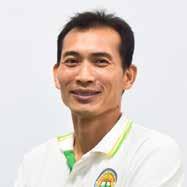
Advancing health equity through equity-centered skill development and evidence-driven practices with healthcare managers and health practitioners.
Introducing primary healthcare physicians to digital solutions that enhance health equity
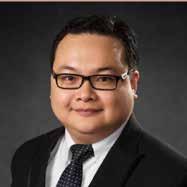
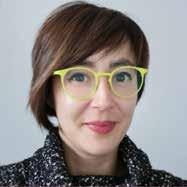
Promoting communitybased intervention programs for people affected by leprosy.
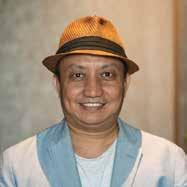
Promoting literacy among children in remote areas to help achieve the goal of universal education.
Involving private sector in providing primary care to harness the efforts of achieving UHC.


Expanding the base of evidence on child labour and migration to better protect the rights of vulnerable children.
Creating opportunities for underserved students through mobile classrooms and addressing inclusivity in education.
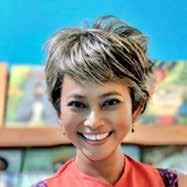
Strengthening cooperation, capacity building and knowledge sharing among regional public health professionals.
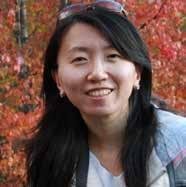
2016 2016 2016 2016 2016 2016 2016 2016
Chhorvann Chhea Chenhui Liu Zhanjie Si Nila Tanzil
Soulivanh Pholsena Nicola Pocock Tim Aye-Hardy Jeremy Lim Chief physician, Lao Medical Care Center. Lao PDR
Assistant Professor, Child Exploitation and Health, LSHTM UK
Co-founder and executive director, myME: Mobile Education Project. Myanmar
Director, the Leadership Institute for Global Health Transformation, NUS Singapore
Director, National Institute of Public Health, Ministry of Health
CEO, FamilyDoc Medical Mechnology Co. Ltd. China
Director, Aizhen China
Founder and CEO of Taman Bacaan Pelangi Indonesia
36
2016 FELLOWS
Coordinator for Access to Medicines Campaign, AIDS
Thailand
Director, Research Center for Health Service Systems, Chulalongkorn University
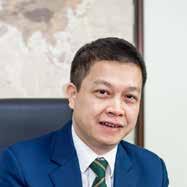


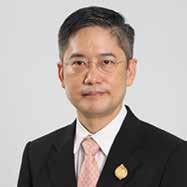


Thailand
Reinforcing drug policies to make HIV and HCV medicine more affordable to all.
Working to protect biodiversity, combat illegal wildlife trade, and reduce plastics pollution.
Leveraging health sector financing and quality management to reduce disparities and advance equity.
Founder/CEO, Center for Social Initiatives
Promotion
Viet Nam
Building the capacity of young social entrepreneurs to influence their environment and become role models for their communities.
Gathering evidence and identifying programmatic and systems facilitators and barriers to advancing health equity.
Bringing more public attention to social issues through her news coverage.
Deputy Director, Communication Department, Ministry of Planning and Investment, Viet Nam
Engaging ministerial leadership to design policies and take action that improve the well-being of all.

2016 2016 2016 2016 2016 2016 2016
Chalermsak Kittitrakul
Jiruth Sriratanaban Pham Kieu Oanh
Access Thailand
Natalie Phaholyothin
CEO, World Wildlife Fund
Hoang Van Minh Nguyen Thu Ha Phan Thi Thuy Tram
Rector, Hanoi University of Public Health Viet Nam
Morning News Producer, Viet Nam National Television Viet Nam
37
Designing digital solutions to help people elevate their dignity and create greater performance and wellbeing.
Lecturer, Peking University First Hospital, Peking University China

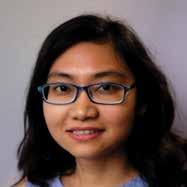
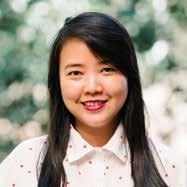


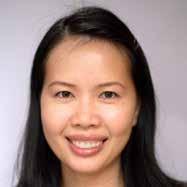
Associate professor, School of Public Health, Kunming Medical University
China
Promoting healthy eating, healthy behaviors, and drug safety.
Conducting research on health disparities and the determinants that adversely affect ethnic minority women and girls.
Co-founder and chief commercial officer, VIDA Digital Identity Indonesia
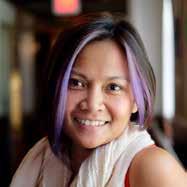
Using digital technology to enhance financial inclusion and sustainable growth of social entrepreneurs.
Lecturer, Faculty of Economic and Business

Lao PDR
Conducting research to inform policy about trade-related constraints that negatively impact poor communities.
Lecturer, Faculty of Medicine, University of Malaysia Malaysia
Country Program Manager, Australian Volunteers Myanmar
Public Health Researcher
Myanmar
Focusing on achieving universal health coverage and providing financial risk protection to households.
Facilitating sustainable social and development change in Myanmar.
Enhancing the health policy and interventions through research on vulnerable population.
2017 2017 2017 2017 2017 2017 2017 2017 2017 FELLOWS
Satiriantinah Bur Rasuanto
Channé Suy Lan Nan Shi Rui Deng Regional lead, InSTEDD iLab Southeast Asia Cambodia
Alay Phonvisay Tharani Loganathan Pan Myat Mon Wai Wai Han
Management, National University
38
2017 FELLOWS
Philippines
Strengthening a network of law professionals, key gatekeepers, and community support for survivors of human trafficking.
Working toward systematic changes through improved health promotion and communication policies and laws.
School Director, Global Mindanao Polytechnic Philippines


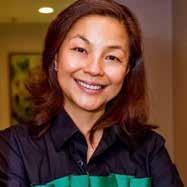
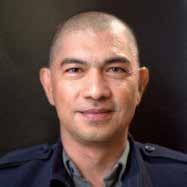
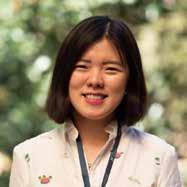
Working to combat rural poverty and to promote equity-based development and sustainable peace.
Creating communitybased solution for palliative care for children.
Phumratprapin
Founder and CEO, Health at Home

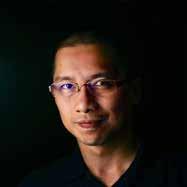
Thailand
Using health technology to address the gap in geriatric treatment and care.

Leading efforts to empower communities facing inequities and to incorporate their insights into policy reform.
Reinforcing national policy and infrastructure to provide affordable and quality primary healthcare services to rural population.
Advocating for social inclusion and ensuring the legal rights and economic opportunities of people with disabilities.
2017 2017 2017 2017 2017 2017 2017 2017
Beverly Lorraine Ho Director, Health Promotion and Communications Service, Department of Health, Philippines
Lynna Chandra Founder, Rachel House Children's Hospice Indonesia
Somporn Pengkam Santi Lapbenjakul Nguyen Thi Lan Anh Founder and Director, Community Health Impact Assessment Platform Thailand
Director, Lamsonthi Hospital Thailand
Founder and Director, Action to the Community Development Center Viet Nam
Benjamin Lawrence Aritao
Director of Prosecution Department, International Justice Mission
Kanapon
Ariel Caringal Hernandez
39
Director, Preah Vihear Provincial Health Department Cambodia

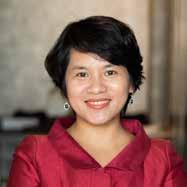
Vice chancellor, School of Medicine, Shanghai Jiao Tong University China

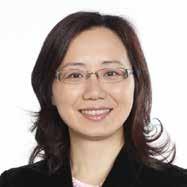
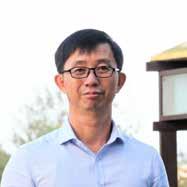

Designing and implementing leadership development programs to help unlock the full potential of individuals.
Working to improve access to primary healthcare services in rural areas, especially for high-risk pregnant women.
Focusing on improving health equity in early childhood through research, policy improvement, and initiating interventions.
Lecturer, Center for Health Development Studies, Peking China


Working to bring greater recognition to the importance and feasibility of reducing health inequities in China and globally.
Advocating for LGBQTI rights through raising public awareness, legal reforms, and behavioral change initiatives.
Clinic
Researcher,
Lecturer, Public Health Department, Faculty of Medicine, University Gadjah Mada Indonesia
Focusing on issues of sexual and genderbased violence and promoting healthy lifestyles.
Conducting evaluation research to address the inequitable distributions of health resources and services in remote areas.
Working to ensure equitable access to quality reproductive, maternal, neonatal, and child health in rural and remote areas.
2017 2017
Do Thuy Duong Founder and CEO, TalentPool Viet Nam
Luong The Huy Director, iSEE Institute Viet Nam
2018 2018 2018 2018 2018 2018
2018 FELLOWS
Koung Lo Fan Jiang Jin Xu
Elisabeth Listyani Tiara Marthias
Center for Health and Policy Management, University Gadjah Mada, Indonesia
Sophia Benedicta Hage
manager and founding member, Medifit Clinic Indonesia
40
Myanmar
Myanmar
Philippines
Working with influential leaders and organisations to ensure that refugees receive the protection to which they are entitled.
Tackling health inequities through the purchase of an essential primary health care package and quality services improvement.
Promoting equity in health resource allocation and making telemedicine accessible for tertiary and secondary care in rural areas.
Putting interconnected systems in place that allow children and youth with special needs to live independent and purposeful lives.
Mindanao Program Director, Community and Family Services International Philippines

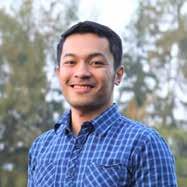
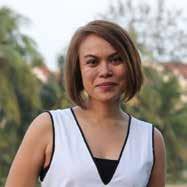

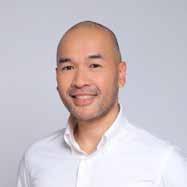

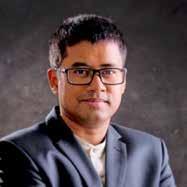

Applying a rights-based approach to institutional capacity building and advance change in rules, regulations and policies.
Working to rebuild lives by addressing the root causes of conflict and improving community resilience.
Bringing attention to sexual and reproductive health to influence policy and promote discussion about taboo subjects.
Promoting equity in fragile, conflict affected states through capacity building and reducing barriers to services for marginalized groups.
2018 FELLOWS 2018 2018 2018 2018 2018 2018 2018
Bawi Mang Lian Medical Officer, Ministry of Health and Sports
Ana Santos Journalist Philippines
2018
Sharon Low Co-Founder and Managing Partner, The Knowledge House Singapore
Nur Khaulah Fadzil Humanitarian Affairs Adviser, International Committee of the Red Cross, Malaysia
Han Win Htat Executive Director, Sun Community Health
Abelardo Apollo David Jr. Founder, Independent Living Learning Centre
Abdel Jamal Disangcopan Attorney for Bangsamoro on Human Rights, Public Health, and Legal Reform Philippines
Noraida Abdullah Karim
41
2018 FELLOWS
Borwornsom
Leerapan
Health Systems
Researcher and Faculty member, Mahidol University, Thailand
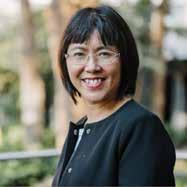
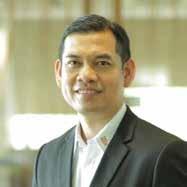
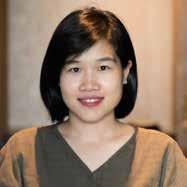
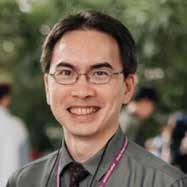
Encouraging policy makers and health practitioners to use systems thinking to develop sustainable solutions to complex issues.
Founder and CEO, LUKKID/Asian Leadership Academy
Thailand
Assistant Chief executive officer, Thai Health Promotion
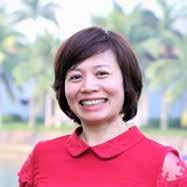
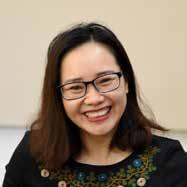

Thailand
Developing human centered work processes that allow people to tackle social challenges through intersectional solutions.
Working to reinforce programs, policies, and practices that promote healthy lifestyles and prevent chronic disease.
Kotchakorn
Voraakhom
Founder and CEO, Porous City Network
Thailand
Using landscape architecture and public park design to tackle climate change and increase urban resilience.
Carmeneza Dos
Santos Monteiro
Strategic Policy Adviser, Ministry of Social Solidarity and Inclusion
Timor-Leste
Improving the utilization of public resources to deliver more equitable social services and enhance protection for vulnerable populations.
Co-Founder and Vice Director, Center for Creative Initiatives in Health and Population

Viet Nam
Working to empower vulnerable and disadvantaged communities and enhance state's accountability.
Lecturer, University of Social Sciences and Humanities, National University, Viet Nam
Working to strengthen the social work profession and promote an equity mindset in social work education and practices.
Head of the Nursing Department, National Children's Hospital
Viet Nam
Creating a collaborative network of nurses and positioning nurses as health changemakers in hospital and in the community.
2018 2018 2018 2018 2018 2018 2018
Pairoj Saonuam
Nguyen Thi Thai Lan
2018
Bui Thi Thuy
May Sripatanaskul
Hoang Tu Anh
42
China
Working to expand health insurance coverage and health service provision, with a focus on the growing elderly population.
Developing a helpline platform for sexually exploited children and advocating for improved law enforcement response to child abuse.
Working to identify facilitators who can integrate health equity work into the clinical practice setting.
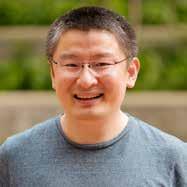
Promoting a digital service and an online network to share information on peoplecentered integrative care among health professionals.

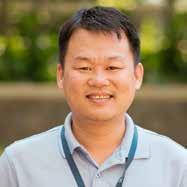
China
Introducing a self sustaining community mechanism to improve access to health equity funds for the poor.
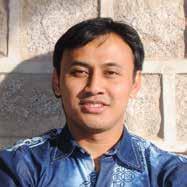
Developing an early child development monitoring system that will identify risks leading to persistent inequities and develop interventions.


Applying digital technology through social innovations to tackle maternal mortality and reducing child malnutrition in rural and remote areas.
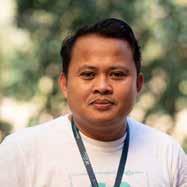
Empowering patients' access to quality health services through partnership building and facilitating conversation about patient satisfaction.

2018
Nguyen Tran Nguyen Official, Office of People's Committee of Dong Thap Province Viet Nam
2019 2019 2019 2019 2019 2019 2019
2019 FELLOWS
Sean Sok Phay Xiao Long Executive Director, Child Helpline Cambodia
Professor and deputy director, Peking Union Medical College Hospital
Sam Oeun
Yunting Zhang Goris Mustaqim Rennta Chrisdiana Managing Director, Buddhism for Health Cambodia
Associate Professor, Shanghai Children's Medical Center
Founder and CEO, Semur Nusantara Consulting Indonesia
Commissioner, Yogyakarta Hospital Supervisory Board Indonesia
Kun Zhang President, Evercare Health Group China
43
2019 FELLOWS
Nutrition Officer, UNICEF
Indonesia
Film Producer and Cofounder of Lao New Wave Cinema Production Lao PDR
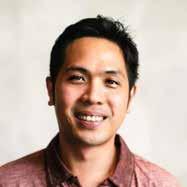
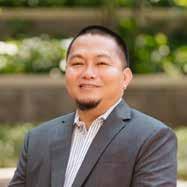
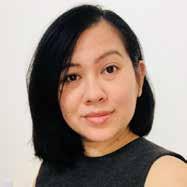
Developing a stronger evidence base to guide programming to address severe malnutrition.
Using documentary film and storytelling to explore complex issues and promote social change.
Technical Officer, Health Emergency Programme, WHO Lao PDR
Working to ensure equal access to resources and services that will enable mitigation and recovery from disasters and public health emergencies.
Senior Project Officer MY Voice, Letchimi Devi works with The Centre for Child Rights and Business, Malaysia
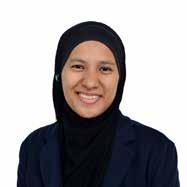
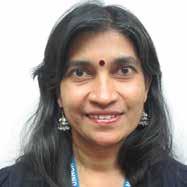

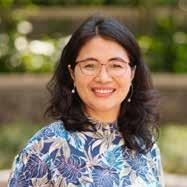
Coordinating and implementing project activities on the ground to tackle child labour issues and protect the rights of domestic workers in Malaysia.
Lecturer, Faculty of Medicine, University Technology
Malaysia Conducting research on disparities in health of vulnerable population and advocating for more effective policy interventions.
Building the capacity of law enforcement and the justice system to combat sexual exploitation.
Vice Mayor, Municipality of Del Carmen, Siargao Islands, Philippines
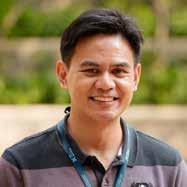
Integrating social determinants related to education, climate change, income, and social protection into local policymaking.
Writer
Using a social justice lens to spotlight inequities and call for collective actions to build a better society.
2019 2019 2019 2019 2019 2019 2019 2019
Gideon Cauton
Gideon Lasco Director, National Law Enforcement Development, International Justice Mission, Philippines
and Senior Lecturer, Department of Anthropology, UP Diliman, Philippines
Phetdavanh Leuangvilay
Letchimi Devi Doraisamy
Vannaphone Sitthirath
Raudah Mohd Yunus
MARA
Blandina Rosalina Bait
Alfredo Matugas Coro
44
2019 FELLOWS
Natarajan Rajaraman

Executive Director, Muluk Timor Singapore
Providing low-cost primary care services to migrant workers and working to strengthen the health systems in limited resource setting.
Kritaya Sreesunpagit
Consultant, Vajira Hospital
Thailand Creating networks of support for health care professionals to remove obstacles that prevent them from reaching their full potential.
Rapeepong Suphanchaimat
Director, International Health Policy Program, Ministry of Public Health, Thailand Conducting health policy research to identify policy solutions and contribute to the policy reform process.
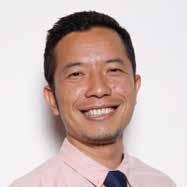
Ratawit Ouaprachanon
Educator, Institute of Human Rights and Peace Studies, Mahidol University, Thailand
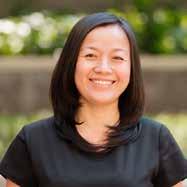
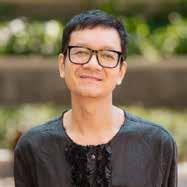
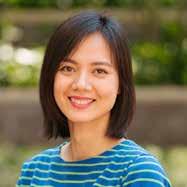

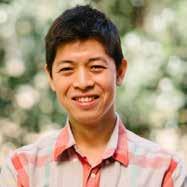
Educating and conducting research to promote peace, reconciliation and conflict transformation.
Panusart Poonkasetwattana
Executive director, APCOM Foundation
Thailand
Country Project Manager, International Committee of the Red Cross, Viet Nam
Artist, curator and founding director, Queer Forever!
Viet Nam
Advancing the health, rights, and well-being of people of diverse sexual orientation, gender identity, and gender expression.
Aiming to ensure access to quality and affordable physical rehabilitation services for people with disabilities.
Using a participatory process to explore issues of queer aesthetics and activism through art, film, and exhibitions.
Co-founder and CEO, Center for Health Innovation Research
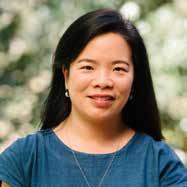
Viet Nam
Establishing a network to connect innovators and health service providers and promote innovation in quality improvement.
2019 2019 2019 2019 2019 2019 2019 2019
Le Thi Nhat
Nguyen Quoc Thanh Phan Thi Ngoc Linh
45
Brunei
Integrating equity work into hospital governance and structures and improving the quality of care to achieve better health outcomes.

Programme Management Officer, UN Youth Strategy
Indonesia
Researcher and the founder of Yayasan Sejuta Harapan (Hands of Hope)
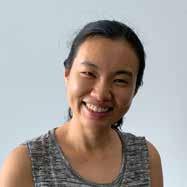

Indonesia
Facilitating implementation of the UN Youth Strategy through leveraging a network of young leaders committed to equity and justice.
Working to mitigate the effects of climate change on the poor and marginalized communities in East Nusa Tenggara province.
Epidemiologist, Port Health Office of Jayapura

Indonesia
Addressing crossborder health challenges and enhancing the effectiveness of infectious disease prevention.
Specialist in Land
Tenure Rights and Natural Resources
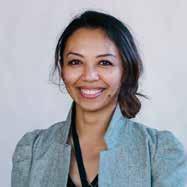
Management
Lao PDR
Building the capacity and strengthening the roles of civil society organisations in environmental and community land-rights issues.
Public Health
Lecturer, Faculty of Public Health, University of Health Sciences, Lao PDR
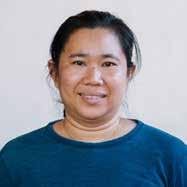

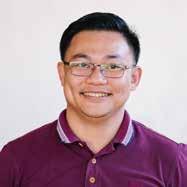
Supporting adolescent sexual and reproductive health rights through research and promoting healthseeking behaviors in adolescents.
Researcher, PhD Candidate
Malaysia
Advisor, Center for Governance and Political Studies
Malaysia
Conducting research on the social injustice and the effects of social capital on the wellness of Rohingya refugees.
Responding to climate change and sustainable development needs through advocacy, networking, awareness raising, and social entrepreneurship.
2021 2021 2021 2021 2021 2021 2021 2021 2021 FELLOWS
Fransiska F. Sugi Alfrison Paloga
Sok Teng Tan Renard Siew
Noor Affizan Rahman Deputy Medical Superintendent, PMMPMHAMB Hospital, Tutong
Angga Dwi Martha
Phetdavanh Sipaseuth
Viengnakhone Vongxay
46
2021 FELLOWS
Executive Director, Roots of Health
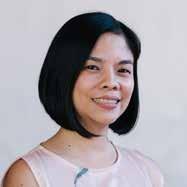
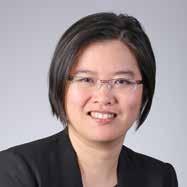
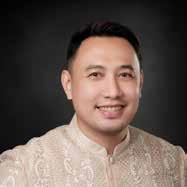


Philippines
Designing communitybased interventions to improve vulnerable women and children's access to health services in hard-to reach areas.
Empowering women and girls to make informed decisions and advocating for sexual and reproductive health and rights.
Developing a legislative and regulatory to strengthen accountability for equity within government and across sectors.
Provincial Health
Officer, Aklan Province
Department of Health
Philippines
Developing a patientcentered care model aimed at improving health system performance and achieving better health outcomes.
Advocating for Ibadahfriendly health facilities and the reform of health education through inclusion of Islamic teachings and community leadership.
Working to integrate genomics into routine healthcare to reduce the burden of chronic diseases.
Founder and Artistic Director of “Malongdu Theatre” Thailand
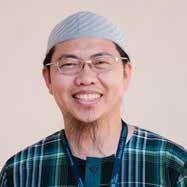
Pioneering the practices of “Theatre of the Oppressed” to build the capacity of social justice changemakers.
Director, Thailand and Myanmar Campaigns, International Rivers Thailand
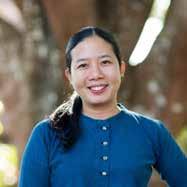
Raising awareness of the negative impacts of dams on ethnic communities and advocating for better planning of water and energy supply projects.
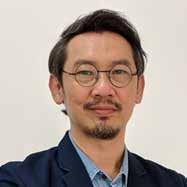
2021 2021 2021 2021 2021 2021 2021 2021
Jason John Joyce Municipal Mayor, Jose Abad Santos, Davao Occidental Philippines
Amina Evangelista Swanepoel
Sornchai Chatwiriyachai
Joanne Ngeow
Associate Professor, Senior Medical Consultant, National Cancer Centre Singapore
Pianporn Deetes
Celyn Celyn Senior Program Manager, Civil Health and Development Network, Myanmar
Leslie Ann Luces
Sherjan Pangato Kalim
Pathologist and Head of Blood Bank, Cotabato Medical Center, Mindanao, Philippines
47
Assistant Professor, Faculty of Economics,

Adviser, National Disability Inclusive Development, GfD Cardno Timor – Leste

Applying a social and political economy framework and promoting community awareness to address social development challenges.
Supporting disability and development stakeholders through capacity building and informed evidencebased interventions.
Head of Faculty Nursing and Midwife, University of Puthisastra
Cambodia
Reforming nursing education to enable nurses to bridge the delivery of health care and meeting the social needs of the community.
Social Protection Specialist, the General Secretariat for the National Social Protection Council, Cambodia
Addressing inequities caused by lack of income and poverty through policy responses, social security measures, and other means.
Vice Director, Medical Education Center, the University of Medicine and Pharmacy
Viet Nam
Supporting medical education reform by introducing innovative ideas into curriculum development.
Concert Pianist, Music Educator, and Founder of Wonder Viet Nam

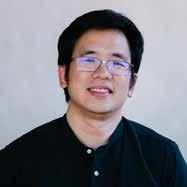
Assistant Professor, The Chinese University of Hong Kong China


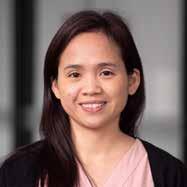
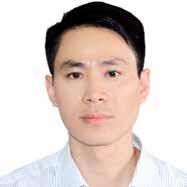
Secretary General and CEO, ILO Global Business and Disability Network China
Enabling others to experience the wonder and transformative power of art and music.
Conducting research and designing interventions to increase the quality of life of patients with rare diseases.
Working to fight for the rights of people with disabilities, creating a legally mandated demand for employment and workers’ support.
2021 2021 2021 2021
Le Khac Bao
Trang Trinh
2022 2022 2022 2022
2022 FELLOWS
Say Sivutha
Dong Dong Haibin Zhou
Thorn Pitidol Sara Maria Pereira
Thammasat University Thailand
Sreypeov Tun
48
2022 FELLOWS
Founder of Into The Light Indonesia
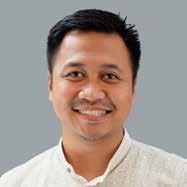
Indonesia
Working with communities on suicide prevention and improving mental health services.
Public Health
Professional and Researcher
Indonesia
Focusing on sexual and reproductive health rights and gender equity in health and calling for renewal actions in health of women and girls.
Program Director, the Centre for Indonesia’s Strategic Development Initiatives, Indonesia
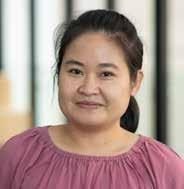
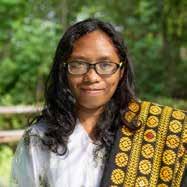
Core Team Member of WISE WASH Southeast Asia

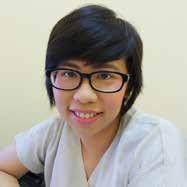
Indonesia
Strengthening health systems through improving human resources, community involvement, and a mechanism to hold government accountable.
Strengthening the power of communities and building solidarity across borders to create change.
Founder and President of Proud To Be Us Laos
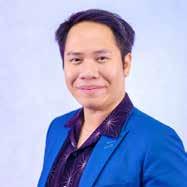
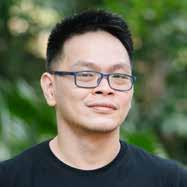
Lao PDR
Academic Staff, Faculty of Public Health, University of Health Science
Lao PDR
Advocating for equal provision of sexual healthcare services and removing stigma and discrimination that LGBTQI communities face.
Promoting sexual and reproductive health among adolescents through peer-to-peer education, counseling, and youth-friendly services.
Founder, M Exchange
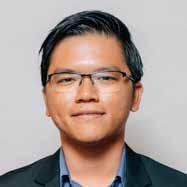
Malaysia
Deputy Director of the Burma Medical Association
Myanmar
Empowering communities through the development of innovative healthcare solutions that contribute to community resilience.
Improving the health status of communities in neglected areas through building partnerships, research, raising awareness, and advocacy.
2022 2022 2022 2022 2022 2022 2022 2022
Putri Saraswati
Rosadalima Panda
Naw Mhote (Tee Tar)
Chandavieng Phimmavong
Anan Bouapha
Collins Santhanasamy
Benny Prawira
Egi Wahid
49
Myanmar
Freelance Journalist; Documentary Producer Myanmar
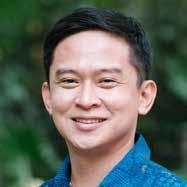

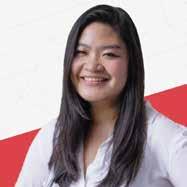


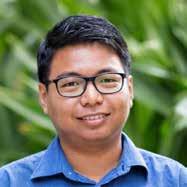
Co-founder
Using mobile community-based healthcare to deliver care to internally displaced persons in conflict-affected areas.
Using storytelling and accurate information to help society understand the reality of social challenges.
Promoting the use of digital interventions for mental health and wellbeing through a youth-led social network.
Applying behavioral science to promote healthier and more productive behaviors.
Planning Officer, the Commission on Population and Development for Region IX, Philippines
Identifying populations at risk for health disparities and providing guidance on how better resource allocation can address those disparities.
Humanitarian
Deputy Director, Open Government Products, GovTech
Establishing an emergency preparedness and response plan and improving disaster resilience by using technology to deliver health services.
Developing health tech products that empower patients to take greater ownership of their health.
Director, Integrated Care (Population Health), National Healthcare Group Singapore
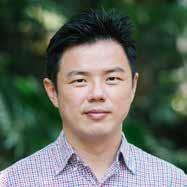
Facilitating system level improvements with the goal of transforming healthcare delivery in an organization serving close to two million people.
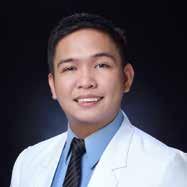
2022 2022 2022 2022 2022 2022 2022 2022
Chi Ling Chan Clive Tan
Singapore
Jose Augustus Villano
2022 FELLOWS
Shairra Alyssa Bello
Co-founder and Partner at AHA Philippines
Nay Lin Tun Eaint Thiri Thu
Humanitarian Medical Worker
Yves Miel Zuniga
and Deputy Director, MentalHealthPH Philippines
Noel Landicho Bernardo
Physician. Public Health Practitioner Philippines
50
2022 FELLOWS
Ada Chirapaisarnkul
CEO of TaejaiDotcom
Thailand
Ittinat Seeboonruang
National Consultant, The German Sparkassensti ung Thailand
Bampen Chaiyarak
Research Coordinator, the Eco-Culture Study Group
Thailand
Developing better solutions to wicked social problems and making health and social services more accessible to the least privileged populations.
Creating collaborative spaces within conversation to enable the involved actors and sectors to voice their perspectives.
Building a greater equity in decision making by strengthening community’s participation in the process of socialecological restoration.
Alisa Hasamoh
Lecturer, Head of the Social Development Department, Prince of Songkla University


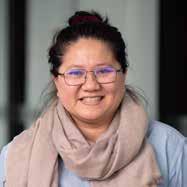
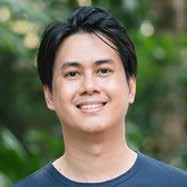

Thailand
Promoting integrated approaches and evidence-based programs that respond to inequities that ethnic minority populations experience.
Pham Ngoc Bich
Deputy Director, Viet Lien Organics
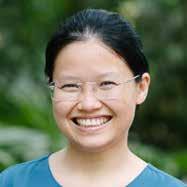

Agriculture Joint Stock
Viet Nam
Senior Program Manager, The Fred Hollows Foundation
Viet Nam
Nguyen Hoang Chieu Anh

Psychological Counselor
Viet Nam
Leveraging the knowledge, participation, and collaboration of community members to introduce new approaches to organic farming.
Transforming eye care delivery systems by leveraging existing resource, building local capacities, and developing tools to increase efficiencies.
Promoting early intervention and empowering individuals to be proactive with respect to their mental health.
Project Officer, The International CenterViet Nam Veterans of America Foundation
Viet Nam
Building a better understanding of the importance of disability-inclusive health systems and policies.
2022 2022 2022 2022 2022 2022 2022 2022
Le Quang Tram Tinh
Tran Quynh Trang
51
List of Sponsored Projects
(*) Fellows’ Second Year Projects
(**) The Equity Community Building Grants
Raising Awareness on Health Equity Among Public Health Professionals in Cambodia (*)
Chhorvann Chhea
Leadership Developments for Leaders of NGOs and Business Sector in Yunnan, China (*)
Zhanjie Si
Raising Awareness of Health Needs of Low-Income Migrants and Refugees in Malaysia and Singapore (*)
Nicola Pocock – Jeremy Lim
Basic Literacy Course for Illiterate Children in Flores, East Nusa Tenggara, Indonesia (*)
Nila Tanzil
A Short Documentary: “The Faces of Inequity” in Bangkok, Thailand (*)
Natalie Phaholyothin – Jiruth Sriratanaban
Assessment of Livelihood and Health Status Among Waste Collectors in Hanoi, Viet Nam (*)
Hoang Van Minh – Pham Kieu Oanh – Nguyen Thu Ha
Community-Led Impact Monitoring from Coal-Fired Power Plant in Thailand-Laos Border (*)

Somporn Pengkam – Channé Suy Lan
Policy Gaps in Protecting the Health of Migrant Workers in Malaysia and China and Returnees in Myanmar (*)
Rui Deng – Tharani Loganathan – Pan Myat Mon – Wai Wai Han
Voices of Hope (*)
Benjamin Lawrence Aritao – Do Thuy Duong
Co-Growing Leadership for Early Childhood Development, China (*)
Fan Jiang – Jin Xu
Improving Access to Healthcare & Livelihood Support for Urban Poor Women in Kuala Lumpur, Malaysia and Manila, Philippines (*)
Nur Khaulah Fadzil – Ana Santos
Engaging Stakeholders in Mapping Health Facilities Distribution in Indonesia, Myanmar, and Philippines (*)
Tiara Marthias – Beverly Lorraine Ho – Bawi Mang Lian
52
Diversity and Inclusion Module for Elementary Students in Myanmar and Philippines (*)
Abelardo Apollo David Jr. – Han Win Htat
Health Equity in Post-Conflict Areas of Mindanao, Philippines (*)
Noraida Abdullah Karim – Abdel Jamal Disangcopan – Sharon Low
Emergent Innovation for the Equity Initiative in Thailand (*)
Borwornsom Leerapan – May Sripatanaskul – Pairoj Saonuam – Kotchakorn Voraakhom
Addressing Knowledge Gaps in Post-Partum Depression Prevention in Viet Nam (*)
Hoang Tu Anh – Bui Thi Thuy – Nguyen Thai Lan – Nguyen Tran Nguyen
Improve Equitable Primary Health Access for Hard-to Reach-and Marginalized Groups in Ratanakiri, Cambodia (*)
Sam Oeun – Sean Sok Phay
Improving Chronic Disease Patients’ Experiences Through Digital Patient Engagement in Beijing, China (*)
Xiao Long – Kun Zhang
Empowering Local Key Actors for Better Programming of Stunting Alleviation in Nusa Tenggara Timur, Indonesia (*)
Goris Mustaqim – Blandina Rosalina Bait – Gideon Cauton – Le Thi Nhat
Health Communication as Equity Challenge: An Art-Based Health Literacy Toolkit with Registered Migrant Workers in Bukit Tinggi, Pahang, Malaysia (*)

Letchimi Devi Doraisamy – Alfredo Matugas Coro – Nguyen Quoc Thanh
Telling Our Own Stories (*)
Vannaphone Sitthirath – Panusart Poonkasetwattana
Increasing Self-Awareness of Implicit Biases among Equity Initiative Fellows Using Process-Oriented Psychology (*)
Ratawit Ouaprachanon – Raudah Mohd Yunus
Improving Early Child Development in A Disaster-Prone Community, Philippines (*)
Gideon Lasco – Rapeepong Suphanchaimat – Yunting Zhang – Phetdavanh Leuangvilay
Women-led Health Literacy and Access for Improving Health Equity Among the Underserved in Malaysia (*)
Sok Teng Tan – Fransiska Felentina Sugi – Sara Maria Pereira
Using Legislative Theatre to Initiative Grassroot Policy Change on Health Equity of Myanmar Migrant Workers in Thailand (*)
Celyn Celyn – Sornchai Chatwiriyachai
Health Equity Index Project (**)
Jeremy Lim | National University of Singapore
53
Strengthening Network of Health Managers Towards Equitable Health Care Services in Communities, Cambodia (**)
Chhorvann Chhea | National Institute of Public Health
Empowering Ethnic Health Equity at the Borders (**)
Somporn Pengkam | Chulalongkorn University Social Research Institute
Championing Village-Based Stunting Alleviation Program in Indonesia (**)
Goris Mustaqim | Asgar Muda Foundation
Building an Equitable Health and Financial Access for Coastal Fishers in the Island of Siargao, Philippines (**)
Alfredo Matugas Coro | RARE, Philippines
Breaking Structural Inequities Upli ing Plantation Workers Dignity, Malaysia (**)
Letchimi Devi Doraisamy | North South Initiative
Mental Health and Psychosocial Support Project, Philippines (**)
Noraida Abdullah Karim | Community and Family Services International
Health Information Capacity Building (**)
Sharon Low | The Knowledge House for Development
Health, Employment and Advocacy: Inclusion of Refugees in the National Agenda (**)
Raudah Mohd Yunus – Nur Khaulah Fadzil | IMARET (IMAM Response & Relief Team)
Equity 360 Viet Nam (**)
Hoang Tu Anh | Center for Creative Initiatives in Health and Population

Health-Private Sector Collaboration Model for Equity in Thailand and Southeast Asia (**)
May Sripatanaskul | LUKKID Co., Ltd
Institutionalization of Teletherapy and Remote Learning in Community-Based Rehabilitation Programs (**)
Abelardo Apollo I. David, Jr. | Independent Living Learning Centre, Inc
Developing a Regional Strategy on Mental Health Issues Faced by Gay, Bisexual and Men who have sex with Men (GBMSM) and Transgender Communities in Southeast Asia (**)
Panusart Poonkasetwattana | APCOM Foundation
Planning and Systems Design to Support the Development of TeleHealth Services to Improve Access to Health in Conflict-Affected Areas of Myanmar (**)
Bawi Mang Lian | Burmese American Community Institute Inc.
Increasing Equitable Essential Service for Survivors of Violence Against Women and Girls in Cambodia (**)
Sean Sok Phay and Channe Suy Lan | Child Helpline Cambodia / Commune Committee for Women and Children / Community Managed Health Equity Fund
54
School Based Mental Health Program Initiative to Strengthen Family with Mental Health Risk (**)
Rennta Chrisdiana | Indonesian Family Advocacy Institute / Rumpun Nurani
Reform in Government Contract System Procurement & Building Workers Voice (**)
Letchimi Devi | Government Contract Workers Network / Parastoo Theater
Resilient Health System in Conflict-Affected Areas (**)
Bawi Mang Lian | Chin Health Organization / TeleHealth Myanmar
Building Community Partnerships for HIV Equity in Palawan (**)
Amina Evangelista Swanepoel | Roots of Health
Financial Protection for Health Equity (**)
Ana P. Santos | Likhaan Center for Women’s Health Inc.
Strengthening Communication for Equity of the Marginalized in Thailand and Border (**)
Pianporn Deetes | Hill Area and Community Development Foundation
Community Approaches to Maternal and Newborn Health Equity in Rural Timor-Leste (**)
Natarajan Rajaraman | Associação Maluk Timor

55
EI Team and Supporters
Members list is arranged in alphabetical order by their first name
EI Team
Duong Hoang Quyen
Kanokrat Thomthong
Kim Cruz
Maytiwa Thavornpinittham
Phuong Le Nhan
Piya Hanvoravongchai
Siraprapa Morrodkute
Southeast Asia Program Advisory Committee (2019-present)
Barbara J Stoll
Christopher G. Oechsli
Global Advisory Committee (2015-2018)
Amartya Sen
Bill Drayton
Christopher G. Oechsli
Fazle Hasan Abed
Ke Yang
Suwit Wibulpolprasert
Suzanne E. Siskel
Keizo Takemi
Le Luong Minh
Lincoln Chen
Nafsiah Mboi
Peter Piot
Members of Regional Selection Committee (Past and Present)
A.K. Shiva Kumar
Alex Au
Channé Suy Lan
Chhorvann Chhea
Khuat Thu Hong
Krissada Raungarreerat
Ma Thida
Michael Lim Tan
Nguyen Thu Ha
Pham Kieu Oanh
Phyllida Travis
Rosalia Sciortino
Saphonn Vonthanak
Sarah Bales
Sharon Low
Suwit Wibulpolprasert
Tharani Loganathan
Tim Evans
Tri Mumpuni
Wanicha Chuenkongkaew
Members of National Committees (Past and Present)
Indonesia
Abby Ruddick
Diah Saminarsih
Erna Witoel
Kamala Chandrakirana
Karen Houston Smith
Laksono Trisnantoro
Lynna Chandra
Nafsiah Mboi
Pandu Harimurti
Satiriantinah Bur Rasuanto
56
Myanmar
Han Win Htat
Khin Tar Tar
Kyawt Sann-Lwin
Si Thura
Philippines
Beverly Lorraine C. Ho
Carmencita T. Abella
Corazon Juliano-Soliman
Ernesto D. Garilao
Thailand
Chalermsak Kittitrakul
Jingjai Hanchanlash
Komatra Chuengsatiensup
Phunthip Kanchachitra
Saisoonthorn
Viet Nam
Ha Thi Thu Thanh
Hoang Van Minh
Huynh Tan Phuc
Le Ha Van
Than Tun Sein
Thein Thein Htay
Yin Myo Su
Joven Cuanang
Norman Joseph Q. Jiao
Rocky Sanchez Tirona
Steven Muncy
Ryratana Rangsitpol
Sinee Chakthranont
Somporn Pengkam
Somsak Chunharas
Surichai Wun’gaeo
Le Minh Giang
Tran Thi Mai Oanh
Vo Thi Hoang Yen
A Note of Appreciation
We extend our deep appreciation to all who have contributed their time, expertise, and ideas to the Equity Initiative. We are especially grateful to all who have served on our Global Advisory Board, Southeast Asia Program Advisory Committee, Regional Selection Committee, and National Committees. The Equity Initiative has grown stronger thanks to their contributions.
57
The Equity Initiative is a program of The China Medical Board www.equityinitiative.org
info@equityinitiative.org
ATLANTICFELLOWS.ORG










 (Fellow of 2016 Cohort)
(Fellow of 2016 Cohort)















 (Viet Nam Fellows Group Project)
(Viet Nam Fellows Group Project)





















































































































































